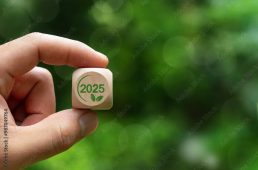You know when you go into the supermarket “just to buy milk and bread” and leave with a cart full of wearies? If you are asked immediately after buying why you purchased all the surplus products, you will probably reply: “We discovered that we need more things at home.” But, is this accurate? Are products you purchased in the store because they were “on sale” or because you felt the need to buy really a need – or just a desire?
Let’s philosophize a little. What do we “need”?
Air is a need, food is a need, water is a need. Without them, we cannot exist. Even without love and human connections we will find it difficult, but – eating in a restaurant is a desire, a new car is a desire, a new outfit is a desire, a new iPhone is a desire, a TV or a computer in every room of the house is a desire. We can exist and even live a happy life without most of the things we want.
In other words, the definitions of need and desire are:
Need:
We cannot control our needs. We may be able to change the way we satisfy the need, but we cannot eliminate it. If we need to eat, for example, there are a variety of foods that will satisfy our hunger, but over time we will not be able to eliminate or ignore this need.
Desire:
We have control and choice over desires, and they change. What we wanted 10 years ago is different from what we want today, and probably different from what we want ten years from now. When we want something, we should stop and try to imagine how we will feel when we achieve that “something.” Joy? Security? Will our self-worth increase as a result of owning more property? If we understand what we wanted to achieve through the desire and what need it answers, we might be able to give it up.
In the 17th century, the French philosopher René Descartes coined the saying “I think, therefore I am” which means that thinking is a way of undermining what exists and is essential to man’s existence. Two centuries later (1987), the American artist Barbara Krueger published a series of works entitled “I consume, therefore I am” to call for liberation from the chains of consumption and the world of consumerism, and as a kicking paraphrase of Descartes.
The design language of Krueger’s work is taken from advertising agency strategies and includes a catchy message and a short sentence. Krueger changed only one word in Descartes’ saying—she replaced the word “thinker” with “buyer,” thus calling for critical thinking: the essence of man’s existence as one based on buying.
The culture of abundance (or Western culture) in which we live tests us according to the wealth index: how many rooms we have in the house, what year the car is from, what brands we wear. We are encouraged to buy goods and services in increasing quantities, and the main value for which we live is obtaining money and economic power by any means, and displaying wealth in a public and extravagant manner. Consumption is perceived as essential and positive, and even those who find it difficult, who do not have them, behave as if they have.
We are all partners in excessive consumption. We treat shopping as a pastime, changing equipment instead of repairing, throwing food from yesterday in the trash, and most of us have no idea how much we spend and for what.
It is easy to blame consumer culture for the loss of human way and meaning, but the problem also lies in the temptation to make the purchase and the means that modern culture puts in place for this purpose: bank overdraft, credit cards, payment spread, loans. The chain of these means of payment paves a safe path to exceeding the family budget and overdrafting at the bank. In order to resist the temptation, it is worthwhile to go back and examine where along the way the difference betweendesire and need has been blurred.
Want a simple tip to help you tell the difference between need and desire?
A “need” is usually born at home, while you’re making a shopping list and thinking about what you’re really missing. “Will” was born among the supermarket shelves, in front of the many advertisements and promotions before your eyes.
In other words, there is something that stands in the way of desire. You.



